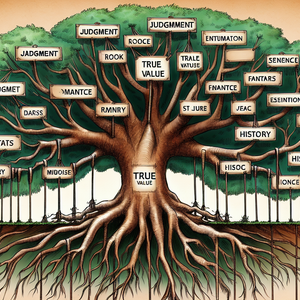Beyond the Paycheck: The True Value of an EMT's Work

Many EMTs view their profession as a calling rather than just a means to earn a paycheck. Sarah, an EMT with over five years of experience, articulates this sentiment perfectly: “Every day brings a new challenge. I love being part of a team that makes a difference in people’s lives, often in their darkest moments.” This sense of purpose fuels her commitment, as she finds fulfillment in the knowledge that her actions can save lives. Research supports this perspective, indicating that professionals in caregiving roles often report higher levels of job satisfaction compared to those in more traditional corporate jobs. A study published in the "Journal of Health and Human Services Administration" found that healthcare workers, including EMTs, tend to derive intrinsic rewards from their work, which significantly contributes to their overall job satisfaction. The satisfaction derived from helping others extends beyond individual encounters. EMTs often form strong connections with their communities, becoming trusted figures during crises. This relationship not only enhances their job satisfaction but also reinforces their commitment to the profession. As John, a seasoned EMT, explains, “When people see the ambulance, they feel a sense of safety. It’s not just about responding to calls; it’s about being a reliable presence in their lives.”
Community Impact: Building Trust and Resilience
The role of an EMT transcends emergency response; they are integral to building community resilience. During natural disasters or public health crises, EMTs are on the front lines, providing not just medical aid but also reassurance. For instance, during the COVID-19 pandemic, many EMTs volunteered for vaccination drives and public health outreach, helping to educate communities about the virus and available resources. John recounts a particular experience during a severe storm: “After the storm passed, I went out to check on the elderly in my neighborhood. They were scared and needed support. It wasn’t just about medical care; it was about being there for them.” Such efforts foster a spirit of trust between EMTs and the communities they serve, creating a safety net that is crucial in times of crisis. Research from the National Association of Emergency Medical Technicians (NAEMT) highlights that EMTs play a vital role in community health and safety, emphasizing that their presence can significantly enhance community resilience. By establishing relationships based on trust, EMTs help communities feel more secure, enabling residents to navigate challenges with confidence.
Career Advancement: Opportunities for Growth
The EMT profession also offers numerous opportunities for career advancement, making it an appealing choice for those looking to grow in the healthcare field. EMTs often have the option to pursue further education and training to become paramedics, nurses, or even physicians. Many EMTs report that their experience in the field provides them with valuable skills and insights that enhance their future career prospects. Maria, who started as an EMT and went on to become a registered nurse, reflects on her journey: “Working as an EMT gave me a unique perspective on patient care. I learned to think on my feet and communicate effectively in high-pressure situations. Those skills are invaluable in nursing.” This pathway illustrates how EMTs can leverage their experiences to ascend the healthcare career ladder, turning initial roles into lifelong professions. Additionally, many EMTs find that their field experience equips them with a unique set of skills that are highly valued in a variety of healthcare roles. As they pursue further education, their background as EMTs often gives them a competitive edge, allowing them to stand out in a crowded job market.
While discussions about EMT salaries are important, they often overshadow the profound impact these professionals have on individuals and communities. The true value of an EMT's work lies in their job satisfaction derived from helping others, the trust they build within their communities, and the opportunities for personal and professional growth. As we continue to recognize the critical role of EMTs, it is essential to appreciate the non-monetary benefits that drive their commitment and passion. By understanding these facets of the profession, we can foster greater support for EMTs and ensure they receive the recognition they truly deserve. Ultimately, the work of an EMT is not just about the paycheck; it is about making a difference, one life at a time.
Paramedic
Fire departments, ambulance services, and hospitals
Core Responsibilities
Provide advanced life support and emergency medical care in pre-hospital settings.
Assess patient conditions, administer medications, and perform critical procedures such as intubation and defibrillation.
Collaborate with other healthcare professionals during transport to ensure continuity of care.
Required Skills
Advanced clinical skills and knowledge of emergency medical protocols.
Strong communication and teamwork abilities to coordinate with EMTs and hospital staff.
Certification as a National Registered Paramedic (NRP) or equivalent.
Emergency Room Technician
Hospitals with emergency departments, urgent care centers
Core Responsibilities
Assist physicians and nurses in providing immediate care to patients in the emergency department.
Perform basic medical procedures, such as wound care, splinting, and IV placement.
Maintain accurate patient records and assist in triaging incoming patients based on severity.
Required Skills
Strong understanding of medical terminologies and emergency procedures.
Ability to work in high-stress environments and make quick decisions.
Certification in Basic Life Support (BLS) and possibly Advanced Cardiac Life Support (ACLS).
Disaster Response Coordinator
Non-profit organizations, government agencies, and healthcare systems
Core Responsibilities
Develop and implement disaster response plans for local communities or organizations.
Coordinate training programs for emergency responders and community volunteers.
Conduct assessments of community vulnerabilities and resource availability during crises.
Required Skills
Strong project management skills and the ability to lead teams during emergencies.
Knowledge of local, state, and federal emergency response protocols.
Experience in community engagement and public health initiatives.
Community Paramedic
Community health organizations, hospitals, and public health departments
Core Responsibilities
Provide preventative care and health education to underserved populations in the community.
Conduct home visits to assess patient needs, manage chronic conditions, and reduce emergency room visits.
Collaborate with local health providers and social services to connect patients with resources.
Required Skills
Strong interpersonal skills and the ability to build trust within the community.
Familiarity with public health initiatives and community resources.
Certification as a Paramedic with additional training in community health practices.
Healthcare Quality Improvement Specialist
Hospitals, healthcare consulting firms, and regulatory agencies
Core Responsibilities
Analyze data related to patient care and safety to identify areas for improvement within healthcare settings.
Develop and implement quality improvement initiatives and training for staff.
Collaborate with clinical teams to enhance patient outcomes and ensure compliance with regulations.
Required Skills
Strong analytical skills and experience with data analysis tools.
Knowledge of healthcare regulations, accreditation standards, and quality improvement methodologies.
A background in nursing or emergency medical services is often beneficial.


